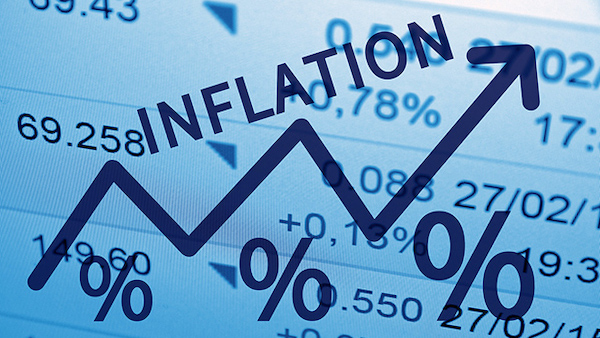Business
Inflation rate hits 15.63%, as food prices eat into Nigerians household income

For eight consecutive months, inflation rate was on a decline in 2021, but that dip ended in December, as the Consumer Price Index (CPI) rose to 15.63 percent, tallying with market reality.
In November, the inflation rate settled at 15.40 percent, to continue the decrease which started in April, when the rate was 18.12 percent, breaking free of a 20 months high run that ended in March.
The increase recorded in December was driven by food prices, which has been a subject of contention since the inflation rate began to fall.
The rate, was however, 0.13 percent points lower than the 15.75 percent reported in December 2020.
Breakdown of the CPI showed that Headline inflation on month-on-month basis, “increased by 1.82 percent in December 2021, this is 0.74 percent rate higher than the rate recorded in November 2021 (1.08) percent.”
How Urban and Rural inflation rate performed?
Both the Urban and Rural inflation rate increased during the period, with the former rising to 16.17 percent (year-on-year) in December 2021, against the 16.33 percent reported in December 2020.
Last month, Rural inflation rate ended at 15.11 percent, in contrast to the 15.20 percent in December 2020, this ia according to the NBS report released on Monday.
“On a month-on-month basis, the urban index rose by 1.87 percent in December 2021, up by 0.75 the rate recorded in November 2021 (1.12) percent, while the rural index also rose by 1.77 percent in December 2021, up by 0.73 the rate that was recorded in November 2021 (1.04) percent.
Drivers of the increase in inflation rate?
The administration of President Muhammadu Buhari has continued to struggle in bringing down food prices, energy and other product cost within the country, as his campaign to support local producers fail to cut cost.
READ ALSO: Food prices reach new peak since July 2011 —FAO
NBS in its report stated that food inflation surged to 17.37 percent in December, rising from the 17.21 percent recorded in November, with Nigerians having to pay more for household consumption.
It was gathered that prices of soft drinks, fruits, bread and cereals, meat, fish, potatoes, yam and other tubers, as well as other food product are behind the increase in inflation rate.
Other contributing factors are energy products: gas, and liquid fuel, with NBS also listing wine, housing rentals, clothing materials and accessories, garments, shoes and other footwear, as well as narcotics and tobacco.
States with highest and lowest food inflation
In the December report, the bureau of statistics stated that on a year-on-year basis ended December, Kogi (22.82%), Enugu (20.65%) and Lagos (20.27%) reported highest rate.
While the lowest food inflation rate on a year-on-year basis is found in Edo (13.24%), Kaduna (13.53%) and Sokoto (14.82%) respectively.
Further breakdown of the states with high cost of food and lowest on a month-on-month basis, shows that the former consist of Cross River (4.09%), Akwa Ibom (3.88%) and River (3.79%).
The lowest food prices was reported in Nasarawa (0.21%), Jigawa (0.39%), “while Kaduna experienced a general decrease in the price level of food or a negative food inflation rate).” NBS wrote.
Join the conversation
Support Ripples Nigeria, hold up solutions journalism
Balanced, fearless journalism driven by data comes at huge financial costs.
As a media platform, we hold leadership accountable and will not trade the right to press freedom and free speech for a piece of cake.
If you like what we do, and are ready to uphold solutions journalism, kindly donate to the Ripples Nigeria cause.
Your support would help to ensure that citizens and institutions continue to have free access to credible and reliable information for societal development.






















